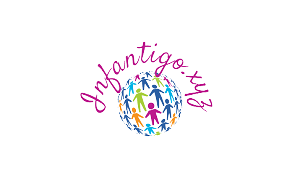Infantigo is a disease which is highly contagious. Red colored scars appear on skin in this disease. It most commonly occurs on exposed skin areas like face, neck, stomach, legs and arms. Kids are more prone to this disease because of their under developed or weak immune system. It is also called as preschool rash because it commonly occurs in children less than 2 years of age. It also occurs in adults but the ratio is very less. It occurs as a result of bacterial infection.
Whenever there is an open wound or scar, the bacteria invade inside body through it. These bacteria start growing inside the body of patient because the body temperature and humidity factors are the desired requirements of bacteria to grow. Usually streptococcus and staphylococcus species of bacteria are responsible for causing infantigo. It is a highly contagious disease and spread readily on direct contact. The blisters of infantigo contain bacteria rich fluid in them.
Whenever these blisters burst or this fluid or pus oozes out of these blisters, it spreads around the skin surrounding these blisters. When fluid comes in contact with skin, it causes irritation and itching on skin. This fluid leads to the formation of new blisters on skin. And that's how it spread. It was all about spreading of disease within person, when we talk about inter person disease spread, there are many ways of disease spread. Physical contact is on top. School going kids when accidentally touch the skin of the infected kid, they become infected too.

So kids should be trained about washing their hand with an anti bacterial soap after they touch an infected kid. Mothers can get infection if they accidentally touch infected red scars of their baby while changing clothes or diaper. Nasal discharge of infected kids also contain causative bacterial species in it. So it can also spread disease from person to person. To avoid this, patient should use a clean paper towel or his separate towel to wipe off his runny nose. And the towel should not be used by anyone else.
Patient should not touch his wound frequently because it can spread disease more aggressively. Excessive rubbing or scratching can lead to more blisters formation and the condition becomes severe. Streptococcus and staphylococcus species of bacteria need humid and warm habitat to grow. So poor hygiene of people living in warm areas can readily cause this disease. Mothers have to prevent touching skin of their children while changing their clothes and diaper. Use if antibiotics soap is necessary after every time they touch their baby.
Patient should take care of his personal hygiene. using antibiotic soap will help a lot in killing bacteria and prevent spreading of infection. Patient should avoid using blanket and pillow with his partner because this disease can spread that way. Patient should keep his items separate which are of regular use. He should keep himself hydrated all the time.
Infantigo is also termed as infintigo, infatigo, infentigo, enfantago, infantago, infitigo, infintago, school sores.
School Sores
The term "school sores" is derived from the fact that infantigo is prevalent among school-going children due to their close contact in classrooms and playgrounds. The infection spreads easily through direct contact, leading to its association with educational institutions.
Infintigo
Infintigo is a misspelling of infantigo, but it is sometimes used interchangeably. Such misspellings might have occurred due to phonetic similarities or typographical errors.
Infatigo
Similar to infintigo, infatigo is another variant of infantigo that results from inadvertent misspellings. The presence of multiple names can sometimes lead to confusion, but they all refer to the same skin condition.
Infentigo
Infentigo is yet another name for infantigo, and it likely stems from regional or dialectal differences in pronunciation and spelling.
Enfantago
The term "enfantago" might have originated from languages where "e" is used as a prefix to indicate "in" or "on," thereby referring to a condition that affects infants. However, enfantago refers to the same condition as infantigo.
Infantago
Infantago is another variation of the Infantigo, probably influenced by regional linguistic nuances or colloquial usage.
Infitigo
Infitigo is another term occasionally used for infantigo, potentially emerging from similar linguistic alterations.
Infintago
The name "infintago" is yet another variation of the term Infintago, reflecting the diversity of regional nomenclature for the same condition.
